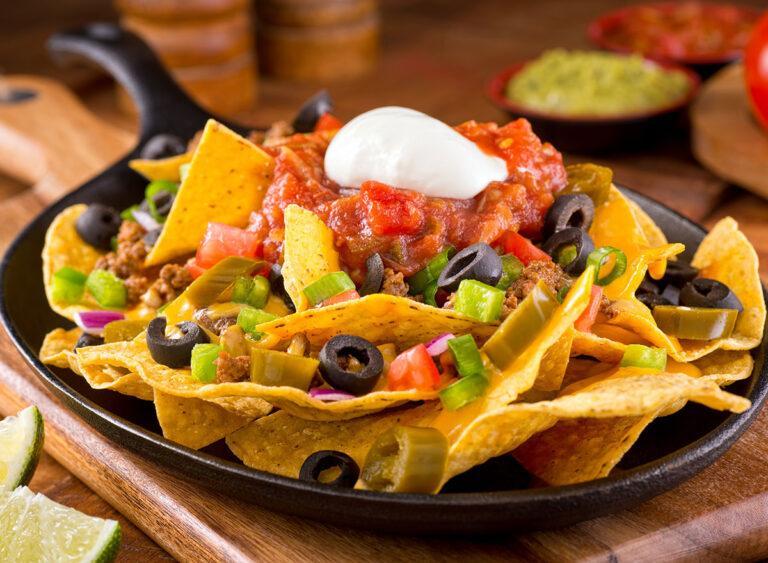Let me be frank about added sugar — yes it tastes good, but the reality is that most of us are having far too much of it.
Not only does it add calories without any nutritional benefits, but excess consumption of sugar is linked to tooth decay, obesity, type 2 diabetes, heart disease as well as certain types of cancer.
But are alternatives to sugar really any better? Given their growing prevalence, this is an important question.
Low or no-calorie sweeteners now pop up in everything from bread and cordial to toothpaste and desserts.
Research in the Journal of the Academy of Nutrition and Dietetics in 2017 found that a quarter of children and 40 per cent of adults were using these sweeteners.
Low or no-calorie sweeteners now pop up in everything from bread and cordial to toothpaste and desserts
Since then, their use has become even more widespread — partly due to the introduction of the sugar tax in 2018, which meant manufacturers had to pay more tax if their goods contained 8g (or more) of added sugar per 100ml.
In fact, according to a recent survey 3.5 million people now use sweeteners at least twice a day.
You can see why. The idea of having a sweet hit without worrying about your health or waistline is appealing.
But is it that simple? For far from saving our waistlines, research suggests that sweeteners may, in some cases, expand them.
That might sound counterintuitive — but research on fruit flies and mice (admittedly not humans — we’re trickier to study) has found that consuming sweeteners increases appetite.
Excess consumption of sugar is linked to tooth decay, obesity, type 2 diabetes, heart disease as well as certain types of cancer. [File image]
For one such study, published in the journal Cell in 2016, researchers gave fruit flies the no-calorie sweetener sucralose for three days. Surprisingly, this encouraged the flies to eat more food and calories. When they stopped the sucralose, their consumption fell.
Did you know?
Food tastes different at high altitudes. One study suggested our perception of saltiness and sweetness drops by around 30 per cent when flying, which explains why plane food rarely hits the flavour mark.
This change in taste perception is a combination of the dry air, lowered cabin pressure and background engine noise, all of which reduce the sensitivity of our tastebuds.
The researchers went on to investigate why this might be, and discovered that the sweeteners activated AMPK, an enzyme that plays a part in stimulating the production of hunger hormones.
The researchers said that although the finding was from flies, the same process is likely to take place in the human brain.
This isn’t an isolated result. Other studies have found that consuming sweeteners one day leads to increased calorie intake the next.
There are now 21 sweeteners approved for use in the UK. These include low-calorie options such as xylitol and sorbitol — our bodies can absorb only a small amount of the calories in them, i.e. they are mostly malabsorbed (and too much can lead to abdominal pain, bloating and diarrhoea).
Then there are the zero-calorie sweeteners such as sucralose, aspartame and stevia, which technically provide no calories at all as we can’t digest them.
Sweeteners are between 200 and 20,000 times sweeter than sugar, so most of them come with fillers to bulk them out. If it was pure sweetener, the flavour would be too intense. Even used in small quantities, sweeteners are so intensely sweet that they can desensitise us to sweetness (and the problem with that is when we then have a sweet treat, we might want more of it to satisfy us than we would otherwise).
This desensitisation was demonstrated by researchers who asked volunteers to cut out all forms of added sugar and artificial sweeteners for two weeks.
If you have added sugar or sweeteners in your tea and coffee, try cutting back slowly, advises Dr Megan Rossi (pictured)
At the end of the study, published in The Permanente Journal in 2015, 95 per cent of the 20 participants found their normal foods now tasted too sweet.
Meanwhile, recent research suggests certain sweeteners can alter the make-up of our microbiome — the microbes that live in our gut and underpin so much of our health.
Try this: Baked cinnamon pears
A deliciously moreish dessert — with no added sugar or sweeteners — this recipe utilises the natural sugar within the fibre-rich pear, which combines with the olive oil to create a sticky sweet glaze for both you and your gut microbes to enjoy.
Serves 2
Preheat oven to 180c and line a baking tray with baking paper. Chop each pear in half lengthwise, and use a spoon to create a small circular hole in the body of each half (removing all of the core and seeds).
Fill the holes in each pear half with chopped nuts. It doesn’t matter if the nuts overflow and spill across the pear or onto the baking tray!
Sprinkle each half well with cinnamon and ginger, before drizzling with olive oil and baking in the oven for about 5 minutes, or until they begin to brown.
Eat while pears are still warm and serve with yoghurt.
In a landmark study published in the journal Cell last year, 120 people were split into six groups and given a daily sachet containing either one of four sweeteners (saccharine, sucralose, aspartame, stevia), glucose, or nothing.
After two weeks, the volunteers were then given a week off from the sachets.
During this time the scientists took stool and blood samples. They also gave the volunteers 50g glucose before and after the trial to see how their bodies reacted.
They found that those having sucralose and saccharine couldn’t deal with the sugar as effectively as they could before the experiments (and as we know, blood sugar spikes have many knock-on effects for health).
What’s more, when the scientists transplanted a stool sample from these people into mice, the rodents also had trouble effectively digesting glucose.
On top of that, all of those having sweeteners experienced a change in the enzymes and chemicals that their gut bacteria produced, which was not apparent in the other two groups. What we don’t yet know is what that means for our health. But it is worth noting that lots of ‘healthy’ products contain sweeteners — even some probiotics or kombucha (fermented black tea), for example. So check your food and drink labels.
And it might be worth sticking to the real deal where possible. So if you want sweetness, choose a little sugar over sweeteners. Or better still, I go for the whole food options, such as fruit — especially for children.
And be creative when you crave a sweet hit. If you like sweet drinks, keep a bag of berries in the freezer and add to sparkling water to make a flavoursome and refreshing beverage.
If you have added sugar or sweeteners in your tea and coffee, try cutting back slowly; your tastebuds take two to three weeks to adjust. Reduce the amount you have by a quarter of a teaspoon each week and you’re unlikely to even notice.
Personally, I believe that cutting back ensures a sweeter future.
If you want sweetness, choose a little sugar over sweeteners. Or better still, I go for the whole food options, such as fruit — especially for children. [File image]
Ask Megan
In 2017 my tastebuds went awry and now everything tastes of salt. My eyes and mouth are dry — for which I use eye drops and suck sugar-free sweets. I don’t drink caffeine, only water and fruit teas. I use zero-salt stock cubes when cooking, but still everything, even home-baked cakes and biscuits, tastes salty. I am 85, losing weight and am depressed.
Elizabeth Burgess, Chorley, Lancashire.
many factors can cause taste loss and disturbances — unfortunately, one of the most common is older age: the number of tastebuds naturally declines and those remaining gradually shrink.
But here are four strategies that can help increase your enjoyment of food again:
1. Try sour flavours: Tart or sour foods can stimulate your tastebuds sending messages via nerves to your brain, where you can detect what a specific taste is — sweet, sour, bitter, salty or umami. Add a squeeze of lemon juice over a pasta sauce, for example, or half a lime with Thai green curry, and see if this helps.
2. Brush your teeth: Making sure that your mouth is clean before eating can help you to taste food better. Try brushing your teeth ten minutes before a meal, and gently brush your tongue, to remove excess tongue film (which includes microbes and their by-products).
3. Stay hydrated: A dry mouth can hinder your ability to taste. Drink big glasses of water between meals and sip as you eat.
4. test your tastebuds: Try purposefully eating foods with strong flavours and try to identify them. Something like chocolate for sweet, citrus for sour, coffee for bitter and cheese for salty. Depending on the cause of your taste disturbances, this can help retrain tastebuds.
If your weight loss exceeds 5 per cent of your body weight, see your GP as certain types of weight loss can be inflammatory, not to mention the resulting increase in nutritional deficiencies. Some, such as folate, zinc and vitamin B12, can make taste disturbances worse.
Contact Dr Megan Rossi
Mail [email protected] or write to Good Health, Daily Mail, 9 Derry Street, London, W8 5HY — please include contact details. Dr Megan Rossi cannot enter into personal correspondence. Replies should be taken in a general context; always consult your GP with any health worries.
This content was originally published here.



















